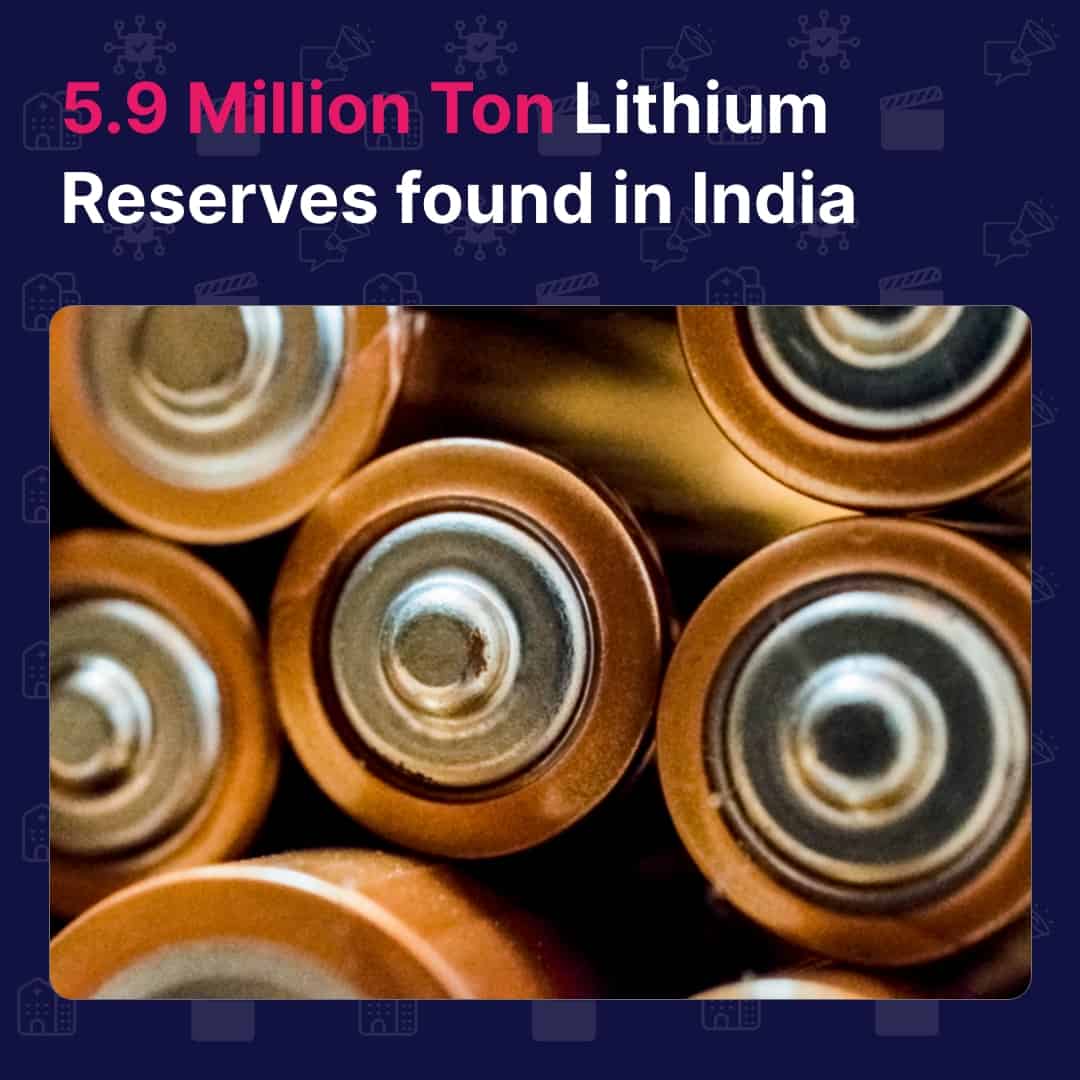
India discovered an enormous deposit of lithium
On February 9, the Indian government reported a find that might have far-reaching effects for the country's ecology, international relations, and political scene: undeveloped lithium reserves totaling 5.9 million tons in the Jammu and Kashmir region. Being a vital component of the lithium-ion batteries most commonly used in electric vehicles and for storing energy from renewable power generators like solar and wind, the nonferrous metal has never been more important to global commerce and the fight against climate change. Now, the country is getting ready to extract and refine the stuff, start holding lithium auctions to private actors by this summer, lessen its reliance on mineral imports from other countries, boost the development of the country's lagging electric vehicle sector, and take advantage of a newly opened path for India to meet its internal clean-tech and clean-energy goals.
According to the Print, an Indian news source, a battery firm executive said, "this will have a tremendous impact on the cost of batteries and make EVs more affordable to consumers." The reserves' potential for "creating jobs" and "producing cash" is high, as the managing director of "alternative fuel" provider Greenfuel Energy Solutions explained: "India's ambition to raise EV adoption by 30 percent by 2030 relies significantly on lithium." Similar to the previous comment, one government official has described the mineral cache as a "game-changer in the economic development of Jammu and the country."
And this is a substantial amount of lithium we're talking about. When added to the smaller reserves of lithium discovered years ago in the state of Karnataka, they appear to herald a domestic bounty of a core material for high-demand energy-storage and electric-vehicle batteries. The Jammu and Kashmir reserves alone dwarf the amounts of lithium held by most nations. Until recently, the subcontinent has had to import as much as 80% of its lithium from places like China, Taiwan, Argentina, and Australia. Nevertheless, the continent may soon be able to provide itself with this essential mineral.
As far as I can see, there is nothing bad that could come from this. Take another look at the area you suspect holds the lithium.
Jammu and Kashmir has been at the center of some of India's most contentious political disputes for decades, making it one of the most militarized places on Earth. As India's sole Muslim-majority state, Jammu and Kashmir was granted exceptional autonomy, but never offered the right to full self-determination. Since the mid-20th century, India and Pakistan have fought over full sovereignty of the territory after claiming their respective territories from the British Empire. Growing disagreements in the part of the state controlled by India, along with the arrival in Pakistan of mujahedeen-trained and -linked rebels after the Soviet-Afghan War, sparked a wave of violence in the region in the 1980s and 1990s. India's armed forces retaliated against armed organizations advocating for the complete annexation of the state by Pakistan or for complete independence by instituting widespread crackdowns across the region. In 2019, the situation worsened as Prime Minister Narendra Modi's government unilaterally abolished Jammu and Kashmir's special status, opening the door to increased external involvement and repression of protests.
That's why it's important to view the lithium find in context. Since its tragic de-empowerment almost four years ago, the situation in Jammu and Kashmir has only gotten worse. The Bharatiya Janata Party, India's ruling party, has consolidated electoral control, driven out business owners, destroyed the territory's economy, imprisoned independent journalists, and shut down the internet in record numbers. This comes as crucial elections are about to be held in the area. A former government minister's essay warning that "everything is not well in Jammu and Kashmir" appeared online on the same day as the union territory's lithium troves were announced, which is an eerie coincidence.
Just how do people in Jammu and Kashmir feel about the lithium? Government assurances that young people will be given preference for mining and refining jobs, that the local economy will benefit from this development initiative, and that residents who may be "affected" by the work (including land excavation, infrastructure development, and potential environmental impacts) will be "adequately compensated and rehabilitated" have apparently inspired optimism in some.
Disclosure: Some of the links in this article may be affiliate links, which can provide compensation to me at no cost to you if you decide to purchase a paid plan. These are products I’ve personally used and stand behind. This site is not intended to provide financial advice and is for entertainment only. You can read our affiliate disclosure in our privacy policy.